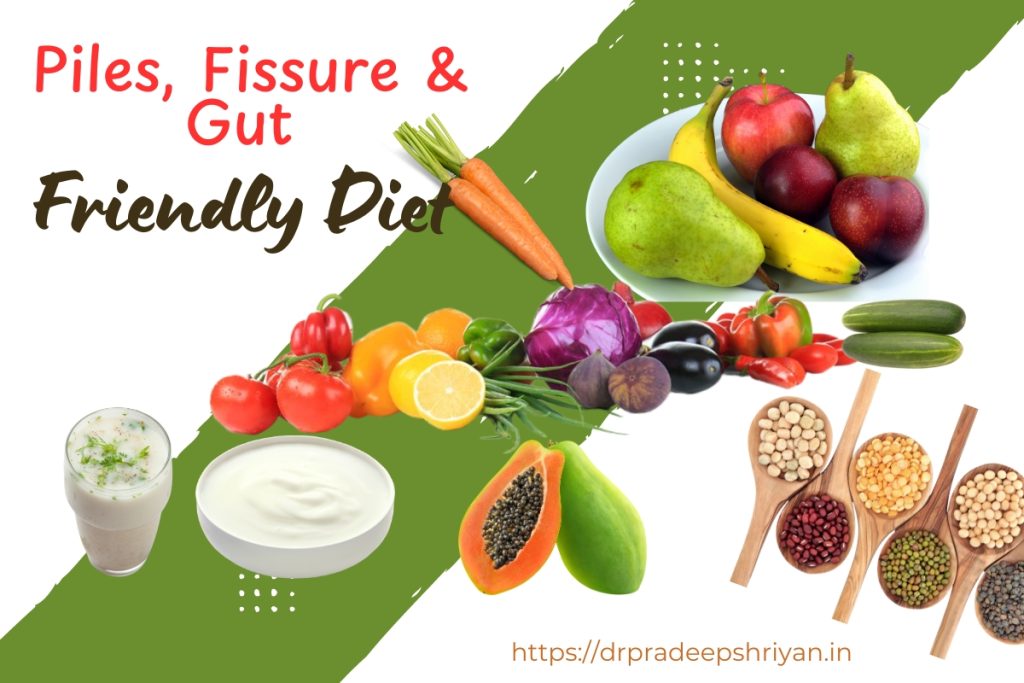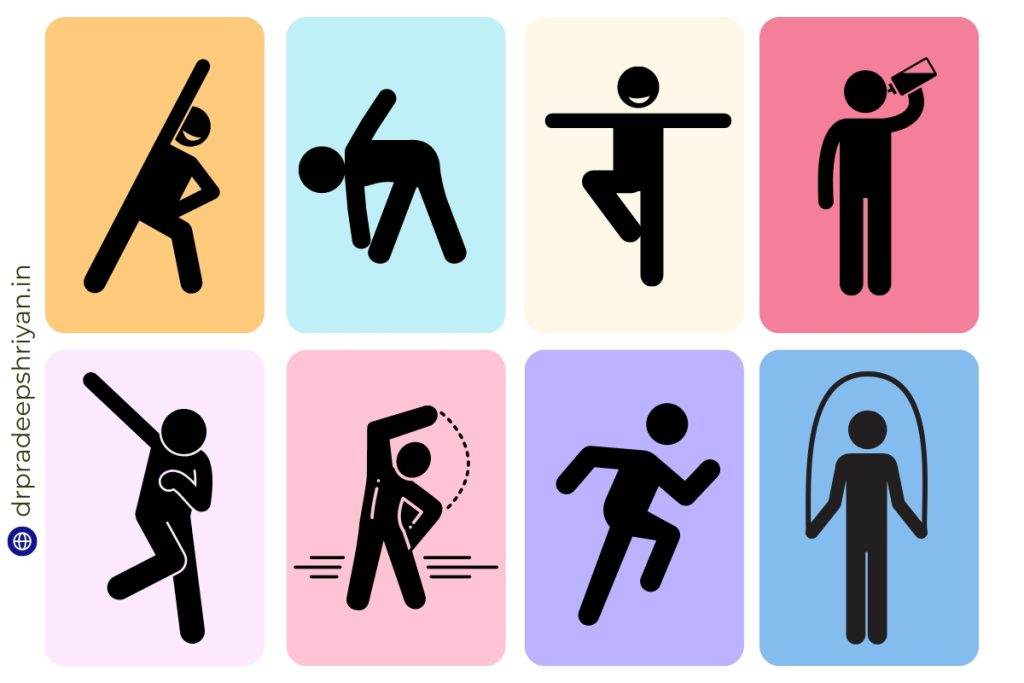Anal warts, fleshy growths that develop around the anus or in the lower rectum. These warts are caused by certain strains of the human papillomavirus (HPV), a common sexually transmitted infection
Constipation, piles (haemorrhoids), anal fissures, and other colorectal conditions can be uncomfortable and even painful. While medical treatment is often necessary, making appropriate dietary changes can greatly alleviate symptoms explained by Piles Doctor in Mumbai
A proctologist is a doctor who specializes in diagnosing and treating conditions related to the Piles, Fissures, Fistula, etc. In India, they are commonly referred to as colorectal surgeons, Proctologists, or Procto surgeons.
September 12, 2024
Constipation, piles (haemorrhoids), anal fissures, and other colorectal conditions can be uncomfortable and even painful. While medical treatment is often necessary, making appropriate dietary changes can greatly alleviate symptoms as explained by Senior Piles Surgeon in Mumbai.
| Food Group | Recommended Options | Benefits |
| High-Fibre Foods | Whole grains (oats, wheat, brown rice), fruits (prunes, apples, berries), vegetables (broccoli, Brussels sprouts, carrots), legumes, nuts, and seeds | Fibre helps add bulk to stool, promoting regular bowel movements and preventing constipation. |
| Hydrating Foods | Water, coconut water, buttermilk, soups | Adequate hydration is crucial for maintaining regular bowel movements and preventing constipation. |
| Probiotic-Rich Foods | Yogurt, fermented foods (idli, dosa, dhokla) | Probiotics support a healthy gut microbiome, which can aid in digestion and reduce inflammation. |
| Anti-inflammatory Foods | Turmeric, ginger, leafy greens, tomatoes, and berries | These foods contain compounds that can help reduce inflammation, which is common in conditions like piles and fissures. |
It is equally important to Limit or Avoid certain foods that may exacerbate symptoms or cause discomfort:

Drink at least 3 to 4 litters of water daily. This softens your stools, making them easier to pass.
To Do:
What Not to Do:
Fibre adds bulk to stools and helps them move smoothly through the digestive system. A high-fibre diet prevents constipation and reduces the pressure on the veins.
To Do:
What Not to Do:
Curd helps maintain healthy gut bacteria, which aids digestion and prevents constipation.
To Do:
What Not to Do:

Light exercise improves digestion and reduces the risk of constipation.
To Do:
What Not to Do:
Some foods are known to worsen constipation and should be limited.
A fibre-rich diet with enough water ensures soft, easy-to-pass stools, which reduces pressure on the veins around the anus. Curd helps balance gut bacteria, improving overall digestion. Regular water intake prevents dehydration, which can cause hard stools and straining.
Fast food is high in fats, refined carbohydrates, and low in fibre, which slows digestion. Foods like burgers, pizzas, and fries, Food items with Mayonnaise lack essential nutrients and can cause constipation, leading to conditions like piles and fissures. In India, the growing fast food culture, combined with a sedentary lifestyle, is a major cause of these conditions.
Yes, a well-balanced diet rich in fibre, probiotics, and anti-inflammatory foods can greatly support the healing process and help manage symptoms associated with piles, fissures, and other colorectal conditions.
The recommended daily fibre intake for adults is 25-30 grams. However, it’s important to increase your fibre intake gradually to avoid discomfort or digestive issues.
Not necessarily. If you don’t have lactose intolerance, fermented dairy products like yogurt and buttermilk can be beneficial due to their probiotic content.
Seeking prompt health advice for Proctology not just for symptom relief but also for screening associated problems.
If you are near Mumbai, you can Contact Senior Proctologist in Mumbai – Dr Pradeep Shriyan
Don’t ignore the troublesome symptoms of Anal or related issues. Remember, early diagnosis and treatment of Piles, Fissure, Fistula are crucial for preventing potential complications and ensuring a successful outcome.
Contact a Proctologist or Piles Doctor in Mumbai or your nearest area if you notice any related symptoms or persistent changes in Symptoms.
Anal warts, fleshy growths that develop around the anus or in the lower rectum. These warts are caused by certain strains of the human papillomavirus (HPV), a common sexually transmitted infection
Tenesmus is a term used to describe a persistent and often painful sensation of incomplete bowel evacuation, or the feeling that you need to pass stools even after having a bowel movement.
Proctitis Treatment in Mumbai. Proctitis is an inflammation of the rectum, which is the last section of the large intestine before the anus.
Peptic Ulcer Treatment in Mumbai
Developed by PRAZONE Web Solutions
Copyright © 2024 All rights reserved by
Dr Pradeep Shriyan